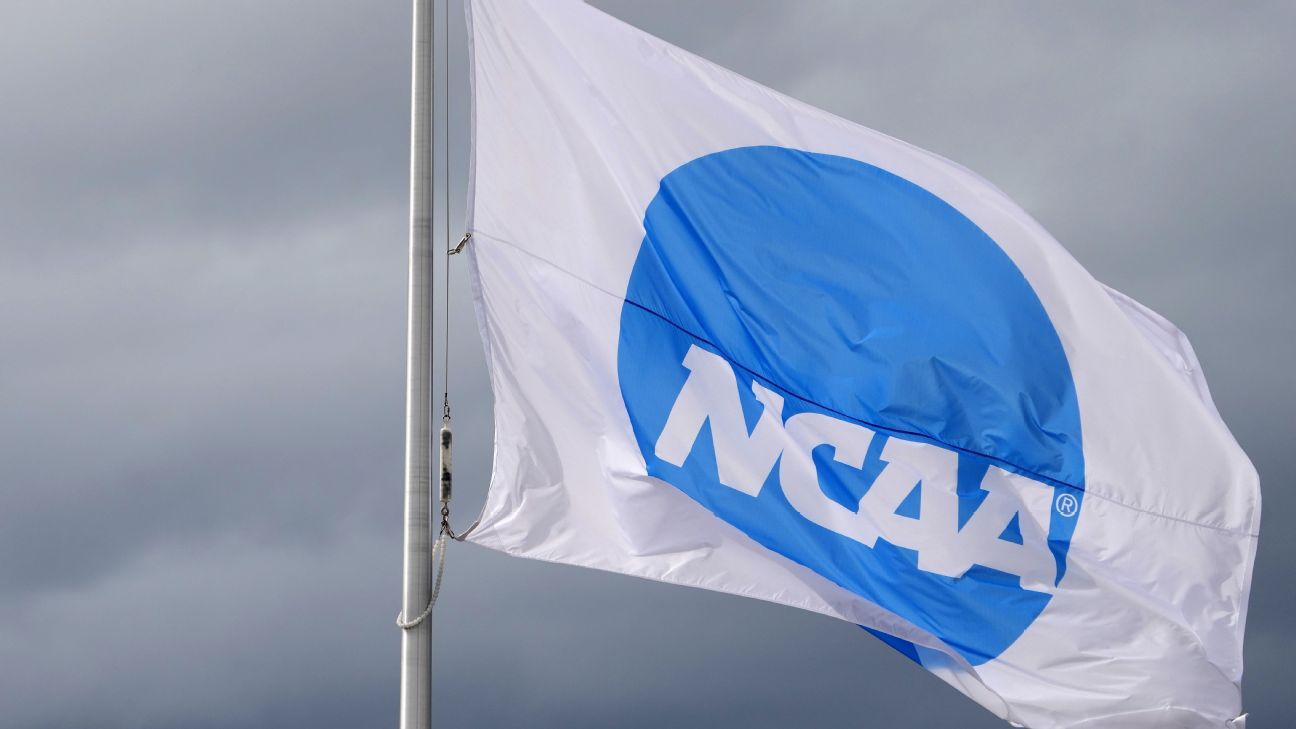
NCAA's lack of NIL pay framework a 'big mistake'
New NCAA President Charlie Baker said Thursday the organization made a "big mistake" by failing to establish a framework for NIL compensation for student-athletes.
Associated Press
WASHINGTON -- NCAA President Charlie Baker said Thursday he wants a federal law to regulate the way college athletes can be compensated for endorsement deals that creates a registry of deals, agent certification and uniform contract standards.
Baker hopes a bill can move through the House and Senate this fall because it is unlikely to get done next year during an election cycle.
If Congress doesn't come though, Baker said, the NCAA has to be prepared to at least try to clean up name, image and likeness compensation on its own.
"I think it was a big mistake by the NCAA not to do a framework around NIL when they had the opportunity to," Baker said during the Future of College Athletics Summit, not far from Capitol Hill. "And I think there were too many people in college sports who thought no rules would work really well for them. And what everybody's discovered is no rules, no transparency, no accountability, no framework, doesn't work well for anybody."
The NCAA lifted its ban on college athletes being able to earn money for sponsorship deals and endorsements in 2020. With only some broad rules in place that prohibit recruiting inducements and pay-for-play, state laws have set varying standards for NIL. Booster- and donor-funded collectives have stepped in to be the primary providers of payments.
NIL has become a new arms race in big-time college sports with state lawmakers crafting legislation that gives their schools an edge, and in some cases protection from NCAA enforcement.
"We're all competitors. We're all looking for advantages," Missouri athletic director Desiree Reed-Francois said during a session at the summit. "Name, image and likeness can be a competitive advantage."
Baker and other college sports leaders from presidents and chancellors to athletic directors and even coaches such as Alabama's Nick Saban have been spending time in Washington to push lawmakers for help regulating NIL. Arizona President Robert C. Robbins said he believes they have the attention of lawmakers.
"I think there's a real bipartisan effort to try to get something done," Robbins said.
In recent weeks, there have been drafts of potential NIL legislation circulating around Capitol Hill and several lawmakers - including Sens. Tommy Tuberville (R-Ala.) and Joe Manchin (D-W.Va.) - have said they plan to introduce bills. But only one bill has actually been introduced.
Baker is framing the need for federal legislation as a way to protect athletes and their families from nefarious actors and a market that lacks transparency.
"And half the time a lot of what people are telling student-athletes I would deem as hearsay, mythology, misinformation and a whole host of other things," said Baker, the former Massachusetts governor who took over his new job in March.
Baker said misinformation about NIL is to blame for a rush of athletes deciding to transfer and ending up with no place to play and stories of unqualified agents taking huge cuts of athletes' NIL deals.
"Congress has the ability to do state preemption. The NCAA sorta, coulda, might be able to do that," Baker said. "But it's way more complicated."
Baker said he is also concerned about potential Title IX implications because NIL opportunities seem to be disproportionately going to male athletes.
"I believe if the deals had to be in a registry and publicly accounted for some of the behavior that's currently going on up there would change and that would be a really good thing, too," Baker said.
Walker Jones, a former Mississippi football player and the executive director of the Grove Collective that supports Ole Miss athletes, said he would be wary of any law that mandates NIL deals be made public.
However, "we're not against uniformity," Jones said.
Baker said he has been spending time with the NCAA's NIL working group, led by Florida associate AD Lynda Tealer.
"I would prefer to get a solution that deals with state preemption for a lot of reasons and you heard some of them in there," Baker told reporters after his panel appearance. "But in the absence of that, we do need to work our process and figure out what we would propose to do as an alternative and get it done by the end of the year."
